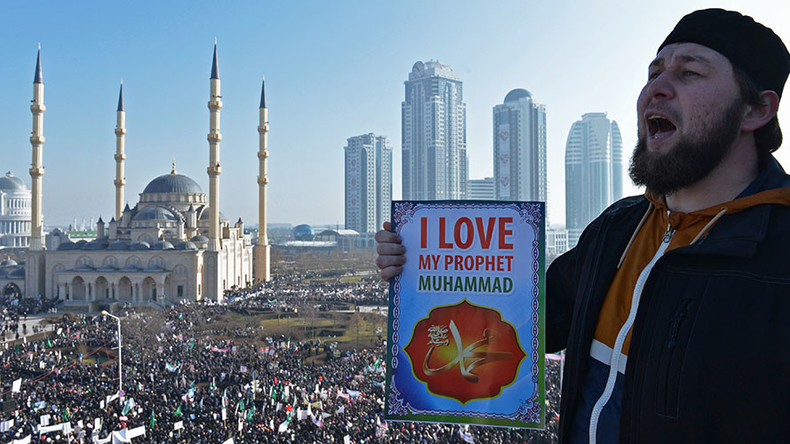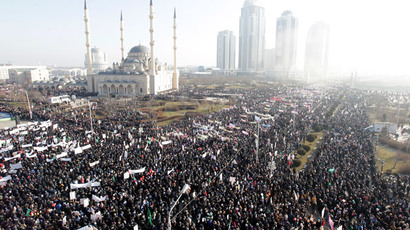Chechen prosecutors ask court to outlaw internet sites with Charlie Hebdo cartoons

In its address to the Leninsky District Court of the Chechen capital, the Prosecutor’s Office said it had monitored internet sites and found reposts of cartoons from Charlie Hebdo.
“The abovementioned fact was the reason for us to file a lawsuit to the Leninsky District Court in Grozny seeking to limit the access to materials that pursue the objectives of insulting [religious] believers’ feelings and the dissemination of which could become a prerequisite for instigation of ethnic, racial or religious hatred or strife,” the message reads.
Russian law allows certain web pages to be taken offline if they are deemed extremist, although this requires a formal court warrant. Sources banned over child pornography, suicide instructions, or those promoting drugs can be shut down before the start of the trial, but must be brought back online if the court does not confirm the grounds for the ban.
Information about blacklisted sites is published on a special website (http://zapret-info.gov.ru) operated by Russia’s media and communications watchdog, Roskomnadzor.
However, representatives of the Chechen directorate of the watchdog told RBC news agency on Thursday that they had not yet been informed about the fresh Charlie Hebdo lawsuit.
Lower house MP Vitaly Milonov (United Russia), known for his support of Orthodox Christianity and traditional values, said that he intended to complain to the Prosecutor General’s Office about the watchdog’s alleged inaction.
“I would like this to become a spiritual catalyst that would help us completely get rid of destructive information. Those who repost Charlie Hebdo pictures must be brought to justice as extremists. Roskomnadzor must block this magazine,” Milonov told RBC.
Charlie Hebdo is known for its cartoons on controversial political subjects. In early 2015, a group of Islamist gunmen attacked the Paris headquarters of the magazine, killing 12 people and injuring 11 others. The attackers said they were punishing journalists for publishing cartoons featuring the Prophet Muhammad. Islamist terrorist groups Al-Qaeda and Islamic State (IS, formerly ISIS/ISIL) claimed responsibility for the attack.
Also in early 2015, at least 800,000 people participated in the ‘Love to Prophet Muhammad’ rally in Grozny in protest against the Charlie Hebdo cartoons. Participants at the rally emphasized, however, that in their view Muslims should not respond to perceived provocation.
“Violence is not the method,” said one of the slogans carried at the event.
Charlie Hebdo later provoked outrage in Russia in November 2015, when it featured a cartoon after the bombing of a Russian passenger jet in Egypt. President Vladimir Putin’s spokesman, Dmitry Peskov, called the image “sacrilege,” adding that in his opinion it had nothing to do with democracy or self-expression.











